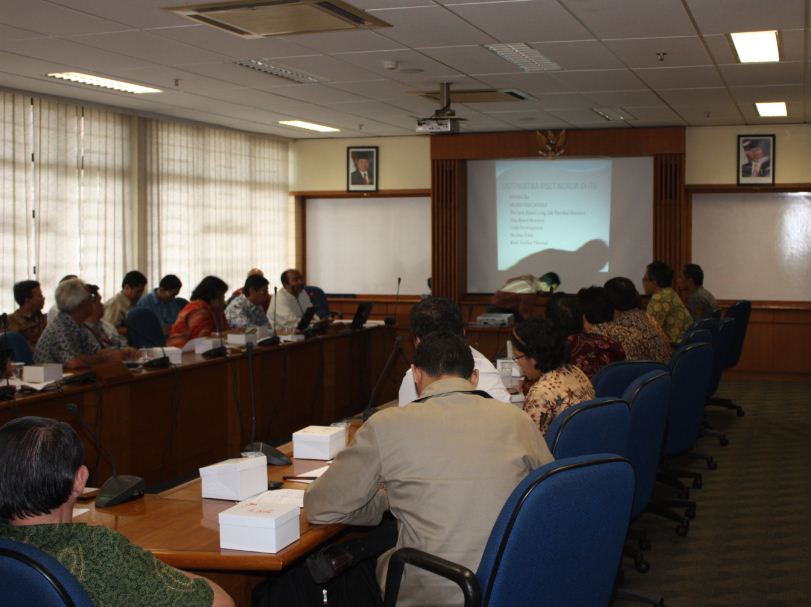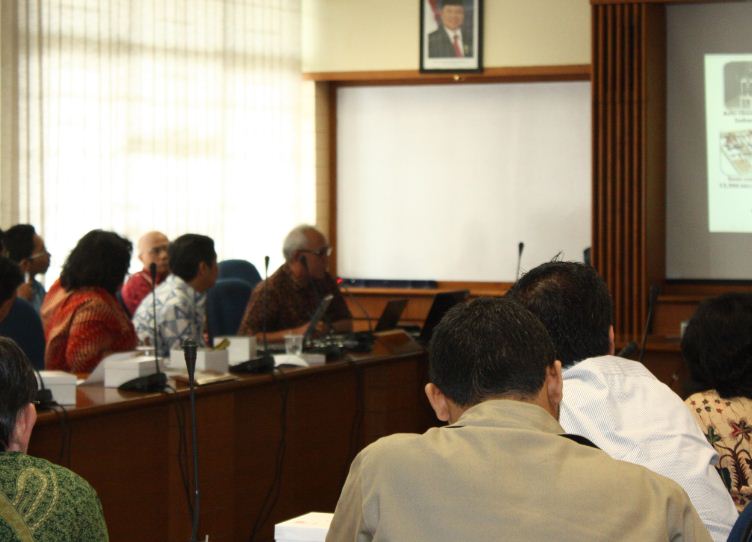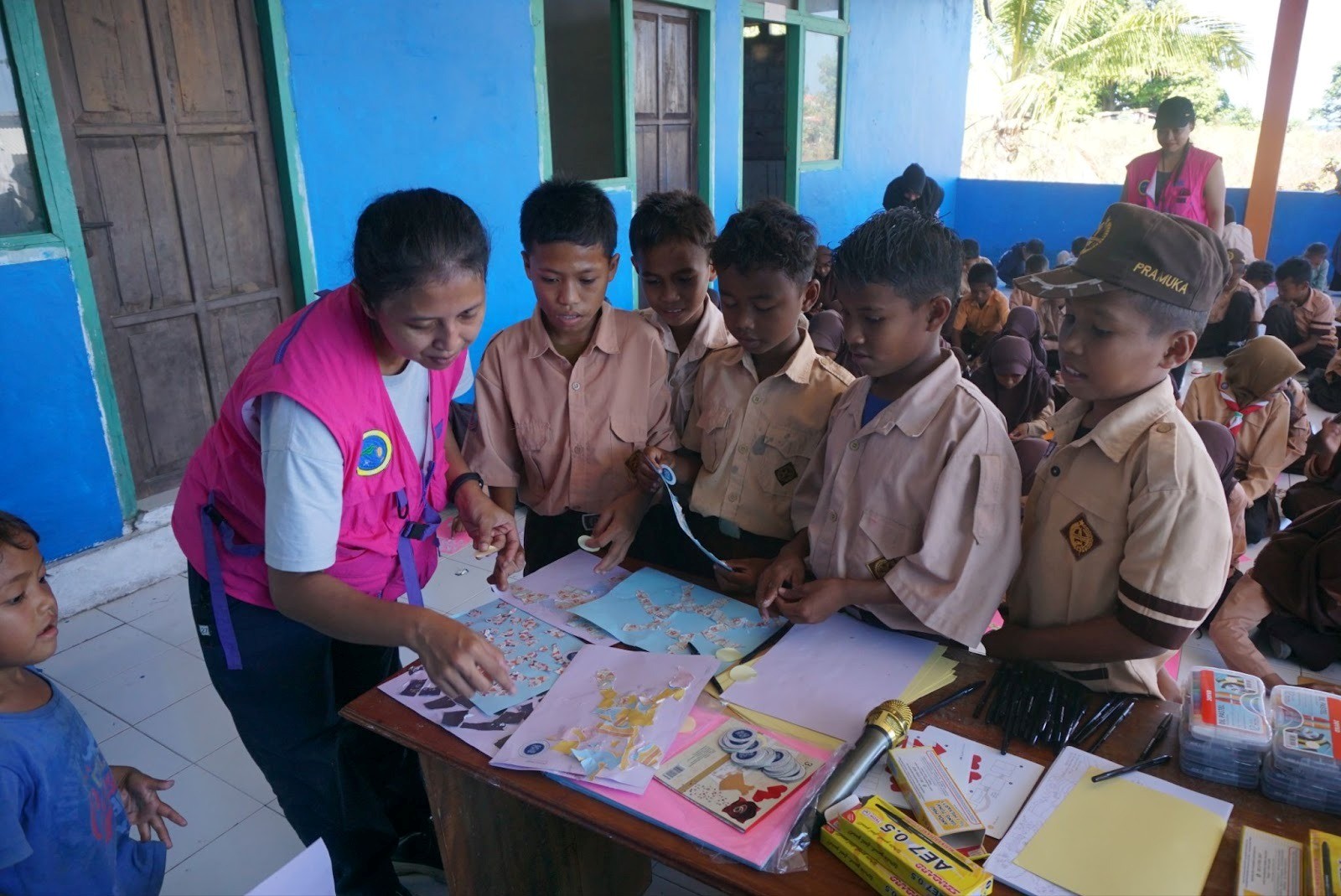LPPM ITB to Conduct Workshop on New and Renewable Energy and Energy Conservation
By UKM Student English Forum
Editor UKM Student English Forum

 BANDUNG, itb.ac.id - To set up frameworks for ITB research and findings on new and renewable energy, ITB Institution for Research and Community Development (LPPM) held Workshop on New and Renewable Energy and Energy Conservation, on Friday (21/01/11) in Room Rapim A, CCAR Building. The workshop was the continuance of the previous meeting between ITB and Directorate General of New and Renewable Energy and Energy Conservation, National Ministry of Energy and Mineral Resource. The workshop addressed energy policy in eleven subjects.
BANDUNG, itb.ac.id - To set up frameworks for ITB research and findings on new and renewable energy, ITB Institution for Research and Community Development (LPPM) held Workshop on New and Renewable Energy and Energy Conservation, on Friday (21/01/11) in Room Rapim A, CCAR Building. The workshop was the continuance of the previous meeting between ITB and Directorate General of New and Renewable Energy and Energy Conservation, National Ministry of Energy and Mineral Resource. The workshop addressed energy policy in eleven subjects.
The subjects are nuclear, CBM, gasified coal, liquified coal, hydrogen, geothermal, hydro, bioenergy, solar energy, wind energy, and oceans. In that occasion, an expert of each field present the ideas and research guidelines in respective fields. The results will be used to set up research program plans on each subject, to be proposed to the Directorate General of New and Renewable Energy and Energy Conservation.
Opportunities for Research on Indonesian Coal Liquefaction
 One of ITB researchers on coal liquefaction, Dr. Ir. Dwiwahju Sasongko, presented the idea about research opportunity on the field. He said that Indonesia, being the second world's largest coal exporter can utilize coal as the enegy source.
One of ITB researchers on coal liquefaction, Dr. Ir. Dwiwahju Sasongko, presented the idea about research opportunity on the field. He said that Indonesia, being the second world's largest coal exporter can utilize coal as the enegy source.
As the world's large coal exporter, the challenge is to convert the coal into resorce of additional value. "Indonesian coals are of low grades requiring further processing," he said. One of the techniques is to convert the coal into its liquified form.
The liquefying is done using a couple of methods: direct and indirect ways. Using indirect way, the coal has to go through gasification phase. Using Fischer-Tropsch principle, the coal is then converted to liquid.
Through a number of researches, the liquid coal is proven to fulfil national energy demands. Sasongko predicted that in 2025, the liquid coal energy will comprise 2% of NRE. "The research also focuses on the use of microbes. It increases efficiency," he added.

.jpg)
.jpg)


.jpg)



